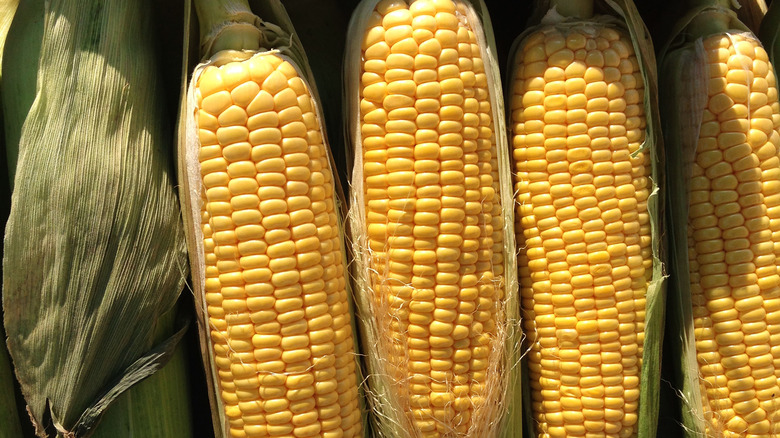The Real Reason Your Body Doesn't Digest Corn
Have you ever noticed that after eating a hefty helping of corn that you haven't — ahem — fully digested it? Finding corn in your stool can be alarming, but is most likely nothing to be concerned over. Why is this? According to experts at Healthline, the outer layer of corn contains a compound called cellulose. Our bodies are not designed to naturally break down this compound, which is why it often passes through our system and is more visibly noticeable in our stool.
You may also find it surprising to know that the type of corn we eat, and the way we prepare it, may have a say in how much of it we digest. Dr. Joanne Slavin, a professor in the Department of Food Science and Nutrition at the University of Minnesota, explains to Best Food Facts, "Starch in corn can be less digestible if the corn is not ground up, either in food processing or the digestive tract." She goes on to say, "When sweet corn is consumed and not completely chewed, some will pass through the digestive tract and escape digestion and absorption."
The inability to digest corn is not cause for concern
There is somehow a belief that corn is unhealthy due to the fact that it's not easily digested. Dr. Slavin disagrees, telling Best Food Facts, "Resistant starch is considered similar to dietary fiber — and is under-consumed in the U.S. diet. So the lack of digestibility of corn would be considered a positive rather than a negative, generally."
If you are bothered by the lack of digestion that occurs with corn, then Healthline has a few tips for you. Chew your mouthful of corn more slowly and thoughtfully to break down the food into smaller particles, as this gives your digestive enzymes an easier time breaking down what's swallowed. Additionally, choose cooking methods like steaming to help make your foods softer and easier to digest.
So whether you're eating corn fresh off the cob, mixed in a medley of frozen vegetables, or added into cornbread, don't be alarmed if you see it again over the next few days. Just blame the high starch content and the outer layer of cellulose.


